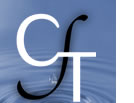 |
|||||||||||
Working Groups
Contemplative Pedagogy Working Group
The ancient practice of contemplation is being explored by many institutions of higher education as a new means of enhancing liberal education. Research demonstrates that “contemplative pedagogy”—the integration of meditative practices into higher education—facilitates the achievement of traditional educational goals such as improved cognitive and academic performance. Studies also show that it fosters the development of the whole person, increasing capacities such as creativity, empathy, compassion, interpersonal skills and self-awareness. Thus, contemplative pedagogy increasingly is considered a vital complement to critical reasoning, rebalancing liberal education to include head and heart, mind and body. Students have experienced it as an aid in focusing attention, improving concentration and accessing self-knowledge. Teachers have found that it fosters their connection to students and rejuvenates their creative engagement with teaching and research. Accordingly, the Center for Teaching is exploring the benefits of contemplative pedagogy, and other holistic means of teaching and learning, in a “Contemplative Pedagogy Working Group” that meets monthly. Organized by Allison Pingree, director, and Kat Baker, assistant director, the group includes faculty and staff from across Vanderbilt University.
For more information or to join the group contact The CFT or call 322-7290.
Teaching and Learning Reading Group
(part of Cycle 2 in the Teaching Certificate Program)
Participants in this group will read and discuss selections from the established literature on teaching and learning in higher education. Initial meetings will focus on core texts with broad, cross-disciplinary relevance. Later meetings will offer participants the opportunity to focus on specific pedagogical topics, techniques, or methods related to their individual needs and interests.
For more information or to join the group contact The CFT or call 322-7290.
Scholarship of Teaching and Learning Working Group
(part of Cycle 3 in the Teaching Certificate Program)
This working group is designed to support its members in engaging in scholarly projects on student learning. The working group will provide tools and guidance in generating researchable questions, information on qualitative and quantitative methods for investigating student learning, resources for “going public” with results, and feedback from peers on projects at all stages of development.
For more information or to join the group contact The CFT or call 322-7290.
HOME | ABOUT CFT | PROGRAMS | SERVICES | RESOURCES
Center for Teaching |
General Questions? Web Site Questions? Copyright ©2009 |
